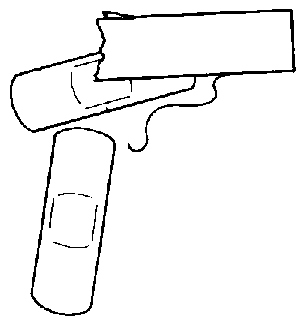

"In all epochs and everywhere, sickness and healing are primal human concerns. Yet the understanding of sickness and the response to sickness through healing vary greatly from time to time and place to place, fundamentally shaped by historical and cultural circumstance." (R. Hahn 1995 Sickness and Healing. Yale Univ. Press. P.1).
This course will provide an overview of a number of central themes in Medical Anthropology. It is designed to emphasize and question the biocultural approach to human health and illness. During the quarter we will examine past and present health problems, environmental factors in disease causation, roles of healer and patient, and anthropological perspectives of illness and treatment strategies. Discussions will also focus on current health issues.
The first part of the course will discuss disease in past and present human populations from a biomedical approach. The dominant paradigms in biomedicine will be presented and discussed through focusing on perceptions of how biocultural factors influence disease patterns. The second part of the course will explore illness, sickness and healing from anthropological perspectives that expand and diverge from the prevailing views in Western society. In this section of the class we will discuss alternative ways of viewing illness and healing as well as discussing the validity of perceiving western biomedicine as a cultural system.
This is a four credit course with both undergraduate and graduate student participants. This is not a lecture class. The organization and format of this course reflects my commitment to "co-responsible inquiry". Our mutual participation in the class represents a collaboration between us. Course content will be presented primarily through lecture, films, speakers and class discussion. You will be expected to keep up with the assignments. Class participation is very important since it enhances learning and communication of knowledge and you will be expected to come to class prepared to lead and participate in discussions by taking responsibility for preparing evaluations of the reading material and developing questions for class discussion.
Heights, Il. See question sheet for a list of potential discussion
questions. I anticipate we will
develop others during the quarter.
2.Packet UO Bookstore / Reserve Material:
Selected articles on reserve in Knight Library.For specific assignments and references see course reading assignment section.
1. One midterm exam: 100 points
2. Final exam: 100 points
3. Book review OR Illness Explanatory model paper: 75
points
4. Class participation: based on discussion, question preparation, and
reading evaluations. 25 points
Book Review Option:
The critical book report must be typed and double spaced. You may choose one book from the following list. You will have the opportunity to discuss your review in class. For the book review presentation you will work in a group with others who chose the same book. Your written review will be individual. Your book report should include answers to the following:
A. Title: include full citation
B. Brief summary or review of the book.
C. Critical evaluation of book:
- Thesis: What is the author trying to prove? Why did the author write the book? What does she/he
say about the subject?
- Evidence: What kind of evidence is used in the book?
- Effectiveness: Are you convinced? How do you feel and what do you think of the thesis? Do you
know of evidence that differs? Do you agree with the author?
- Bias: Do you think the author is biased? Do you know of information or contradictory evidence
that was omitted? Do you know anything about the author that might make you think
she/he was biased? (look for other work they wrote)
- Comparison with class: In what ways does the book agree or disagree with other course material?
- Personal evaluation of the book.: This section of the review should include your personal
reactions to the book, a critique of the book, and whether or not you would recommend
it to others and why.Book Review Options:
* Managing Turbulent Hearts. Unni Wikan
* Flexible Bodies. Emily Martin
* Aids and Accusation. Paul Farmer
* Why are Some People Healthy and Others Not? R. Evans, M. Barer and T. Marmor.
* The Woman in the Body. Emily Martin
* Birth as an American Rite of Passage. R. Davis-Floyd
* Why We Get Sick. Randolph Nesse and George C. Williams
* From the Fat of Our Souls. Libbet Crandon-Malamud
Illness Explanatory Model Paper
If you choose this assignment you will select one illness/disease. You will research the illness and then write a paper describing two Explanatory models for the disease/illness. One model will rely on the western biomedical model. The other will either be an EM that you are able to determine from research that you do using library material or personal interviews with individuals who hold this EM. I will assist you as much as possible. Your paper will be typed, double spaced and you will have the opportunity to discuss your work in class. You are encouraged to do this project as a group project. You will need to select your topic by week 2 of class and then we will work closely for the rest of the quarter to develop the project.
TENTATIVE SCHEDULE Week Topic
1
Introduction to Medical Anthropology
2-3 Disease Theories As Cultural Products
Biomedical Model: Basic Principles
Ecological Perspective
Human Adaptation Model
Definition of disease
Causes and Classification of disease4 - 5 Disease in Human Evolution
Disease, human evolution and adaptation
Epidemiological Transition Theory
6 - 7 Current Problems and Issues:
Who becomes sick, injured or dies?
Changing Patterns of Health and Disease
The Influence of Ethnicity, Class and Gender
Degenerative Diseases:
8 - 9 Healing systems
Seeking health and help
READING ASSIGNMENTS